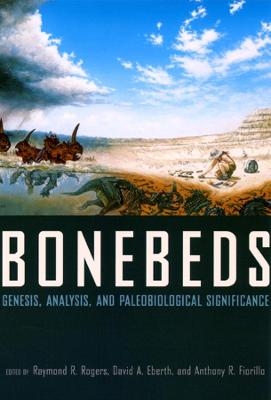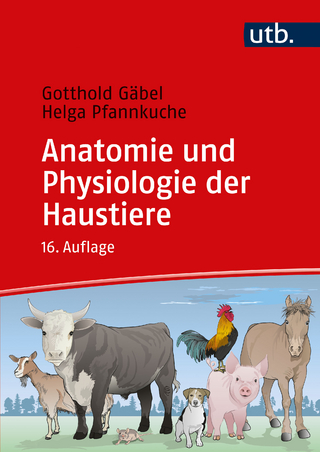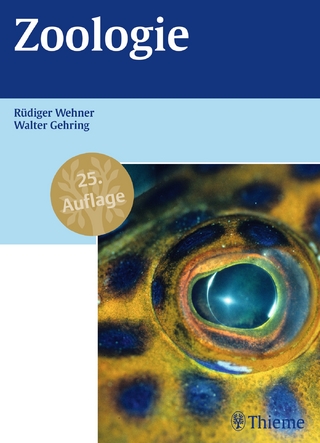
Bonebeds
Genesis, Analysis, and Paleobiological Significance
Seiten
2008
University of Chicago Press (Verlag)
978-0-226-72370-9 (ISBN)
University of Chicago Press (Verlag)
978-0-226-72370-9 (ISBN)
- Titel z.Zt. nicht lieferbar
- Versandkostenfrei innerhalb Deutschlands
- Auch auf Rechnung
- Verfügbarkeit in der Filiale vor Ort prüfen
- Artikel merken
The vertebrate fossil record extends back more than 500 million years, and bonebeds - localized concentrations of the skeletal remains of vertebrate animals - help unlock the secrets of this long history. This title provides readers with definitions, theoretical frameworks, and modern techniques in bonebed data collection and analysis.
The vertebrate fossil record extends back more than 500 million years, and bonebeds - localized concentrations of the skeletal remains of vertebrate animals - help unlock the secrets of this long history. Often spectacularly preserved, bonebeds - both modern and ancient - can reveal more about life histories, ecological associations, and preservation patterns than any single skeleton or bone. For this reason, bonebeds are frequently studied by paleobiologists, geologists, and archaeologists seeking to piece together the vertebrate record. Thirteen respected researchers combine their experiences in Bonebeds, providing readers with workable definitions, theoretical frameworks, and modern techniques in bonebed data collection and analysis. By addressing the historical, theoretical, and practical aspects of bonebed research, this edited volume - the first of its kind - provides the background and methods that students and professionals need to explore and understand these fantastic records of ancient life and death.
The vertebrate fossil record extends back more than 500 million years, and bonebeds - localized concentrations of the skeletal remains of vertebrate animals - help unlock the secrets of this long history. Often spectacularly preserved, bonebeds - both modern and ancient - can reveal more about life histories, ecological associations, and preservation patterns than any single skeleton or bone. For this reason, bonebeds are frequently studied by paleobiologists, geologists, and archaeologists seeking to piece together the vertebrate record. Thirteen respected researchers combine their experiences in Bonebeds, providing readers with workable definitions, theoretical frameworks, and modern techniques in bonebed data collection and analysis. By addressing the historical, theoretical, and practical aspects of bonebed research, this edited volume - the first of its kind - provides the background and methods that students and professionals need to explore and understand these fantastic records of ancient life and death.
Raymond R. Rogers is professor in and chair of the geology department at Macalester College in St. Paul, Minnesota. David A. Eberth is a senior research scientist at the Royal Tyrrell Museum in Drumheller, Alberta, Canada. Tony R. Fiorillo is a faculty member in the Department of Geological Sciences at Southern Methodist University and curator of paleontology at the Dallas Museum of Natural History, Dallas, Texas.
| Erscheint lt. Verlag | 7.3.2008 |
|---|---|
| Sprache | englisch |
| Maße | 16 x 24 mm |
| Gewicht | 794 g |
| Themenwelt | Geisteswissenschaften ► Archäologie |
| Naturwissenschaften ► Biologie ► Zoologie | |
| Naturwissenschaften ► Geowissenschaften ► Mineralogie / Paläontologie | |
| ISBN-10 | 0-226-72370-4 / 0226723704 |
| ISBN-13 | 978-0-226-72370-9 / 9780226723709 |
| Zustand | Neuware |
| Haben Sie eine Frage zum Produkt? |
Mehr entdecken
aus dem Bereich
aus dem Bereich


